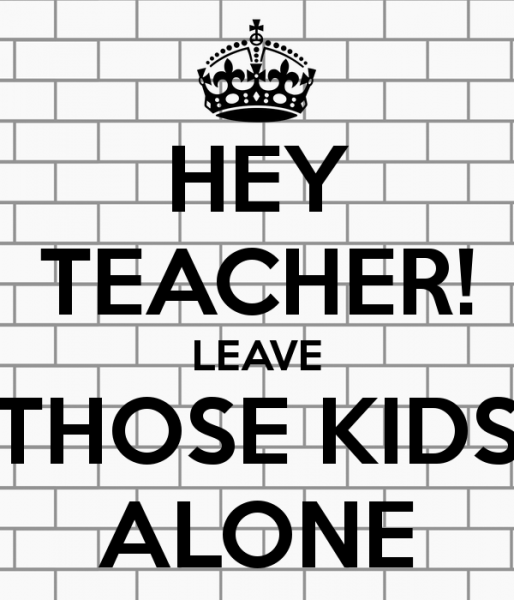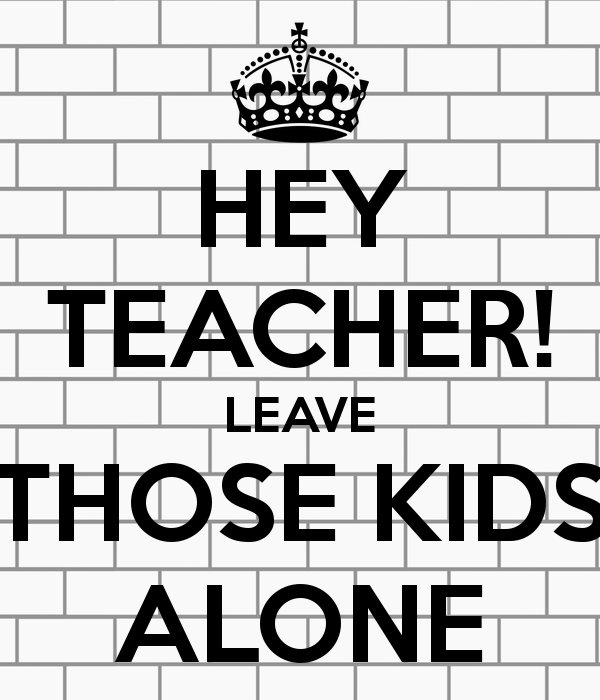
There is widespread consultation going on about the future of Tomorrow’s Schools (among so many other things!). Implemented on 1 October 1988, the model was founded on the neo-liberal concepts of choice, competition and (at various points) a weakening of the relationship between the state and schooling.
Avid readers have read my views on school choice before. It was a mechanism intended to improve schools, but in fact all it has done is separate communities by race and class and clog up endless roads and motorways. Its effects in Auckland have been devastating.
Moreover, to this day there has been not one jot of research evidence that any child’s life has been improved by shifting her to a more distant school. And, the overall international assessment is that we have fallen down the world rankings of core educational proficiencies from about 1st to about 15th.
But what I want to write about today is Boards of Trustees. The over-riding question is should they be abolished in favour of another governance model? Before Tomorrow’s Schools, primary schools were run by district-level boards, while secondary schools had their own, or shared, boards. These were not, I think, mostly elected, but made up of people in the industry.
The evidence provided at the time focussed mainly on the administrative shortcomings of the system. People went on and on about how long it took to get broken windows fixed. It was never clear whether this was fact or mere propaganda.
At the time David Lange’s advertisements said: “If you can govern a child, you can govern a school”. The aim of the policy was to empower parents to change things they did not like about schools. That promise was rarely men for those who needed it most.
There has been a lot of research done on board of trustees over the years. Three main findings have been:
- The BOT experience differs tremendously depending on whether the school roll is increasing or contracting, and on the reputation of the school, both of which are more or less determined by the socio-economic make-up of the community served. In particular, the boards of high social makeup schools are largely made up of skilled professionals, whereas the need for skilled governance in such schools may be quite low. Conversely, the skills and experience of board members in low social areas tend to be fewer, while the need is great.
- In the first period after election of a new board, the board is largely reliant upon absorbing the knowledge and experience of the school Principal. It is not until about a year on that the board has been trained up enough to govern effectively, and even then they may have trouble with complex issues. It is only towards the end that boards become (at best) a reliable sounding board and steering mechanism for the school.
- In some research by the OECD, parents were famously called ‘self-perpetuating oligarchies’ by the researchers. What they meant by this was that the talents, biases and values of a school community became completely reflected in the make-up of the board, so each reinforced the other. As communities may demonstrate elements of race or class bias, sexism and failure to uphold international treaties such as the United Nations Convention on the Rights of the Child, so might BOTs be locked into the same problems.
All of these research points are useful and robust, and all raise alarms about the role of BOTs. It should be said that most boards do reasonable work once they are trained, but their global impact on improving schools is, at best, modest.
I also acknowledge that boards provide a useful mechanism for spreading governance training in communities, and that many parents feel they have learned significant skills by serving on boards.
One good example of all of the themes raised above was the haircut case. You all know the story. A polite young man, community hero, was suspended from school because his curly hair touched his collar. He was told to get it cut, but instead offered to pull it back into a bun. This solution was rejected.
The school board was told off by the High Court for wielding powerful instruments (school suspension) for trivial matters, for failing to follow their own rules (the solution of a bun was not disallowed in the school rule and should have been sufficient) and for failing to consider the boy’s human rights.
Interestingly, a poll of parents of the school after the event found that nearly all of them still supported the board’s actions. No long hair in our community! No beautiful curls on boys! Self-perpetuating oligarchies, you see.
A new governance model is needed. The current one is expensive and there is little evidence of effectiveness. More is needed (and this includes resources as well as expertise) to lift up the neediest schools. I think that a regional governance response is needed, possibly linked to local government boundaries (but I am not suggesting devolution to Councils, just to work within Council areas, both urban and rural).
Dr Liz Gordon began her working life as a university lecturer at Massey and the Canterbury universities. She spent six years as an Alliance MP, before starting her own research company, Pukeko Research. Her work is in the fields of justice, law, education and sociology (poverty and inequality). She is the president of Pillars, a charity that works for the children of prisoners, a prison volunteer, and is on the board of several other organisations. Her mission is to see New Zealand freed from the shackles of neo-liberalism before she dies (hopefully well before!).






Good article.
I am on our local board of trustees and we are a well functioning and productive board. However I totally agree that a new model is needed. Relying on volunteers is fine when everything is operating well, but when things get complicated the amount of time needed from board members is unrealistic.
The amount of bureaucracy that the board chair has to deal with on an ongoing basis is crazy for a volunteer position. There needs to be something that recognises the voices of the community while taking the mundane school operation out of our hands.
The article ignores the fact that all schools had committees prior to the Lange govt changes, and these also were cosy little male dominated groups, as some local women found out when a group of us arrived at the annual meeting of the committee, of a small rural school. The males asked why we were there and we told them we came because it was the AGM. We were told politely that school committee was a male committee. Obviously that was we were there. At least now that school is governed by a cross section of that district with women playing their part. Another considerstion is that now boards have a fair bit of say in candidates for vacancies, and this did not happen in the past.
so tomorrows schools have become yesterdays failures? If roger douglas and richard prebble had had their way they would have all been privatised way back then! However I wish Liz Gordon had provided some examples of how other country’s with better oecd ratings manage their pedagological institutions.
Comments are closed.